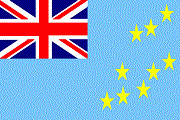Delivered by H.E. Samuelu Laloniu, Permanent Representative of Tuvalu to the United Nations, 8 June 2020.
--
Madam Chair, excellencies and distinguished guests,
Let me begin by wishing you all a very happy World Oceans Day on behalf of Tuvalu, proud shared custodians of the Blue Pacific Continent.
To the founding members of this initiative, Maldives, Norway and Antigua and Barbuda, we thank you for your vision and perseverance in bringing about this important milestone.
We would also like to thank the President of the General Assembly, the Secretary-General's Special Envoy for the Ocean and the Executive Director of the United Nations Environment for their insightful statements this morning.
Finally, we would also like to take this opportunity to offer our condolences to those countries which have lost citizens to the Covid-19 pandemic. Our thoughts are with you.
PLASTIC POLLUTION
The Ocean is a trans-boundary, dynamic resource that is threatened by the polluting activities undertaken by sovereign states, often within their territories.
Accordingly, increases in plastic production, especially of single-use items, in recent decades has seen plastic waste reach every part of our planet, from cities and forests to mountains and deep ocean trenches.
The effects of this pollution reach into a number of marine development sectors in the Pacific, including fisheries, tourism, maritime transport, biodiversity conservation and coastal management.
Plastic pollution is also a driver of climate change. Not only from toxins released from degrading plastic waste and plastic burned in incinerators but also the environmental effects of the gas, oil and coal used to produce such products.
AIMS
With the SDGs, especially target 14.1 underpinning our vital work, Tuvalu aspires to a Group that promotes strengthened and coordinated political momentum on the issue of marine plastic pollution.
Much work is underway, including amendments to the Basel Convention to include plastics, changes to the UNEP Open-Ended Expert Group on Marine Litter and Microplastics, regional declarations on plastics and practical efforts including through the South Pacific Regional Environment Programme.
At the national level, Tuvalu is taking steps to regulate plastic waste within our legal framework. For instance, in 2019 our government issued a Waste Management Regulation which prohibits the importation, manufacture, sale or distribution of single-use plastic items.
PRESSING CONCERNS FOR TUVALU
Tuvalu recognises a need for greater political and economic integration in our region to create an agreed framework for change.
As you may know, Tuvalu is the reluctant poster-child for the climate change crisis. As a vulnerable Small Island Developing State we are acutely aware that current production and consumption models are unsustainable. We call on the Group of Friends to promote circular economy principles where waste is ‘designed out’, products are made to last and be repaired, and resources are recovered rather than discarded.
Such a major shift requires innovation, enhanced cooperation, better data aggregation and coordination between the private sector, civil society and local and national governments.
This unprecedented time in our history has shown us, more than ever, how critical the UN system is in coordinating and protecting sustainable development. We believe the Group gathered today is up to this task and commit ourselves to combatting marine plastic pollution alongside you all.
I thank you,


